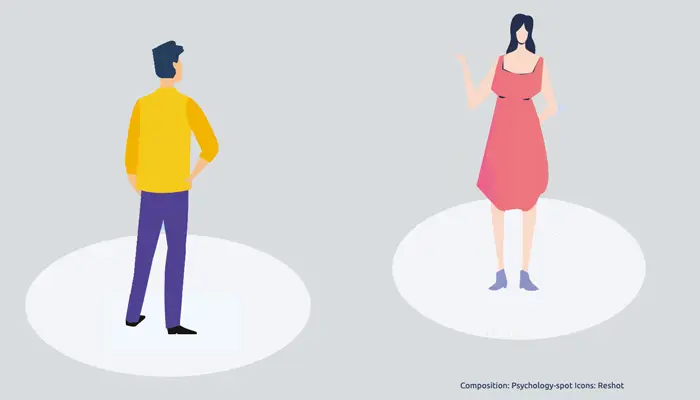
We are taking steps back.
Social distancing has been one of the most important measures to contain the coronavirus pandemic that has been raging for months. But it seems that some people do not find it so easy to maintain that distance, which has caused new outbreaks to appear that threaten to trigger a second wave that condemns us to relive the nightmare of a total confinement.
The reasons for ignoring the social distancing measures vary from person to person, but now researchers at the University of California discovered that everything could be redirected to our working memory.
What exactly is the working memory?
Short-term memory, also known as operational or working memory, is a cognitive process with which we keep information active in our minds for a short period of time, usually just seconds. It is like a kind of temporary warehouse where we keep the data we need to make decisions, think or follow the thread of a conversation.
However, the amount of information that we can retain in working memory for a certain period of time varies from person to person. In fact, the capacity of working memory has been linked to other cognitive skills, such as intelligence, understanding and learning.
For example, if we have to make a decision, but cannot keep all relevant information in working memory, we will likely end up ignoring important variables and make a biased decision. Instead, keeping the necessary information active will help us see the problem from different perspectives and weigh different alternatives.
The greater the working memory, the more social distancing
850 people participated in the study in question. It was carried out during the first two weeks after the declaration of alarm for the pandemic in the United States. Participants completed a series of surveys and tests that assessed their mood and cognitive functions, and, of course, the degree to which they complied with the measures of social distancing.
The researchers found that those with greater working memory capacity applied the social distancing guidelines better because they were more aware of the benefits and better understood the costs and risks to which they were exposed.
“The greater the capacity of working memory, the more likely it is that people will follow social distancing behaviors”, said the researchers, adding that “This relationship remains even after controlling relevant psychological and socioeconomic factors such as depression or anxiety, personality traits, level of education and income.”
Riskier decisions due to poor working memory
Despite the fact that the virus has been with us for months, many people have not yet made the use of masks and social distancing a habit, which means that whenever they face situations of potential risk, they must decide what to do.
Therefore, complying with social distancing measures implies starting a laborious decision process that consists of evaluating the costs and risks comparing them with the benefits of these behaviors. This process occurs precisely in working memory.
In fact, another study carried out at the University of Trieste found that working memory plays a particularly important role in more complex cognitive tasks, especially in processes of resistance to change, the application of decisional rules and confidence in decisions that we take.
To make a decision, we must keep in our memory all the reasons why breaching social distancing can be dangerous. If we are not able to do so, the chances that we engage ourselves in risky behaviors and putting others at risk are increased.
This crisis is sanitary, but it demands a more intelligent approach from the psychological point of view, both socially and personally. Therefore, the next time we are tempted to break the social distancing, we must stop to think whether we are considering all the factors.
Sources:
Xie, W. et. Al. (2020) Working memory capacity predicts individual differences in social-distancing compliance during the COVID-19 pandemic in the United States. PNAS; 2008868117.
Missier, F. et. Al. (2013) The Multifold Relationship Between Memory and Decision Making: An Individual-differences Study. J Exp Psychol Learn Mem Cogn; 39(5): 1344–1364.



